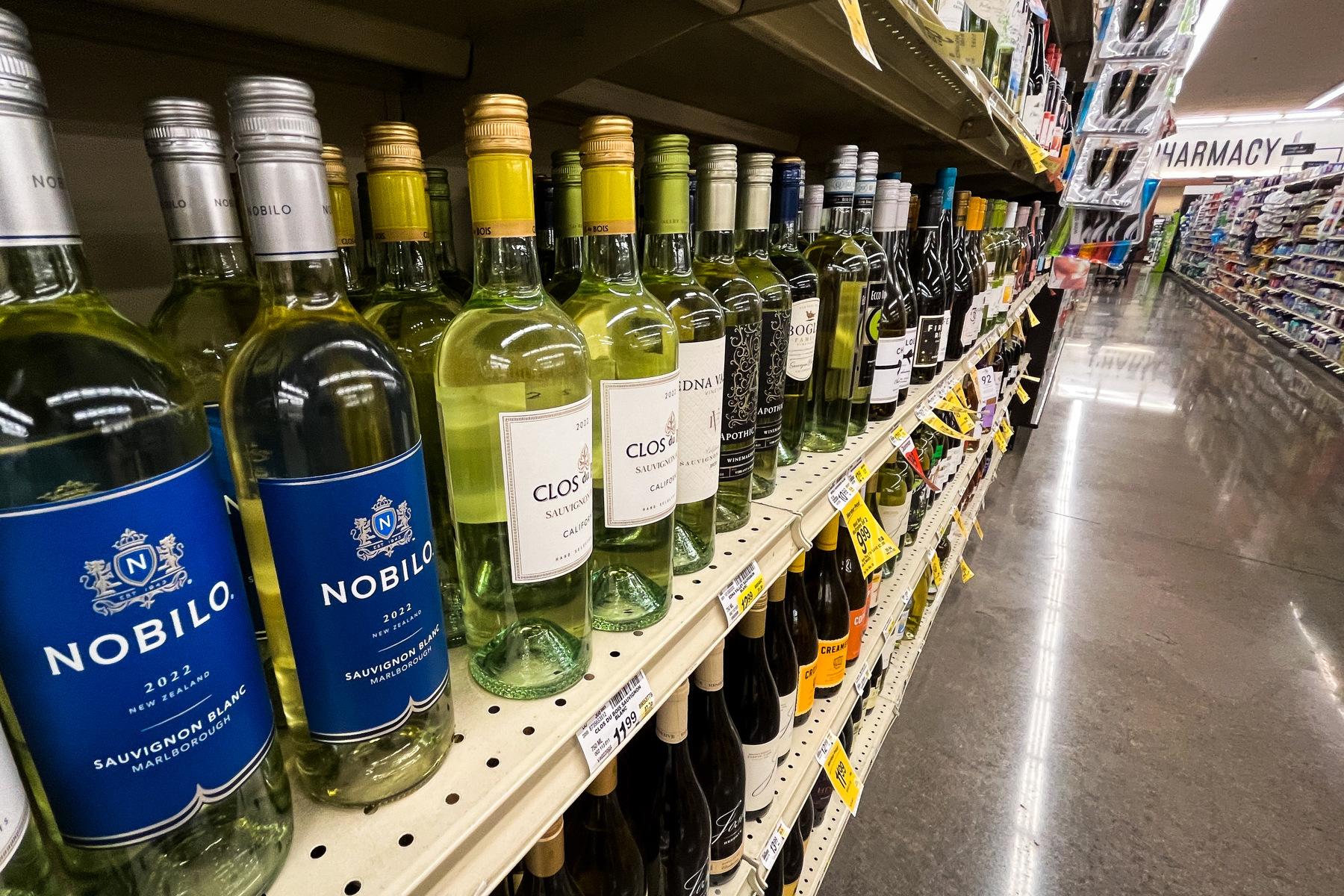
The beginning of March marked one year since supermarkets and other large chain stores in Colorado started selling wine because Coloradans passed a ballot measure that expanded grocery liquor licenses to include it.
Colorado’s liquor stores said they’ve seen a big drop in sales since grocery stores entered the wine market. The number of liquor stores in Colorado dipped slightly in 2023, but there doesn’t appear to be a mass of small shops going out of business, according to data from Colorado’s Department of Revenue.
Even so, a decline in foot traffic at local liquor stores can have ripple effects throughout the state’s alcohol ecosystem, which includes the distributors and producers that serve those shops.
While no one trend stands out from state data on liquor licenses or sales figures, it’s clear that the landscape is changing. Some stores have closed, but some are finding niches to survive while the dust settles around how Coloradans are buying their bottles of red for dinner.
CPR News checked in with the different players in the industry to see how the change is playing out across the state.
Liquor stores
Grape Expectations, Denver
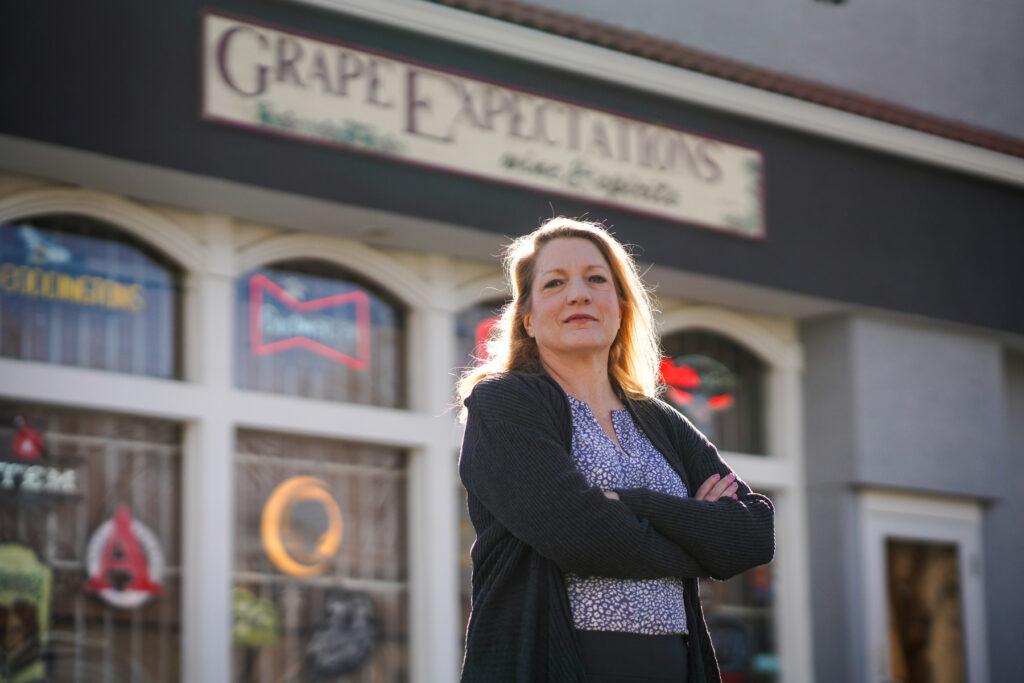
Kate Conte’s family-owned Grape Expectations in Denver’s Park Hill neighborhood for 24 years. She sold the store in January.
“We got to say goodbye to our customers, started notifying them in December, and what I wanted in the sale was that we could celebrate our 24th anniversary and that they would keep my staff. They ended up not keeping my staff, but we did end up having our anniversary party and just being able to thank our customers and recognize the impact on the community. So it was kind of bittersweet, obviously,” Conte said.
The new owner plans to keep it a liquor store. Conte isn’t sure what their business plan is.
“We had discontinued a lot of the grocery store brands. I just didn't want to compete with that market. We knew that they were going to come in and they were going to use it as a loss leader. I couldn't compete on price and nor would I want to try,” she said. “It wasn’t the market we entered into and we didn’t really want to be a part of it anymore.”
Bottle Shop 33, Denver
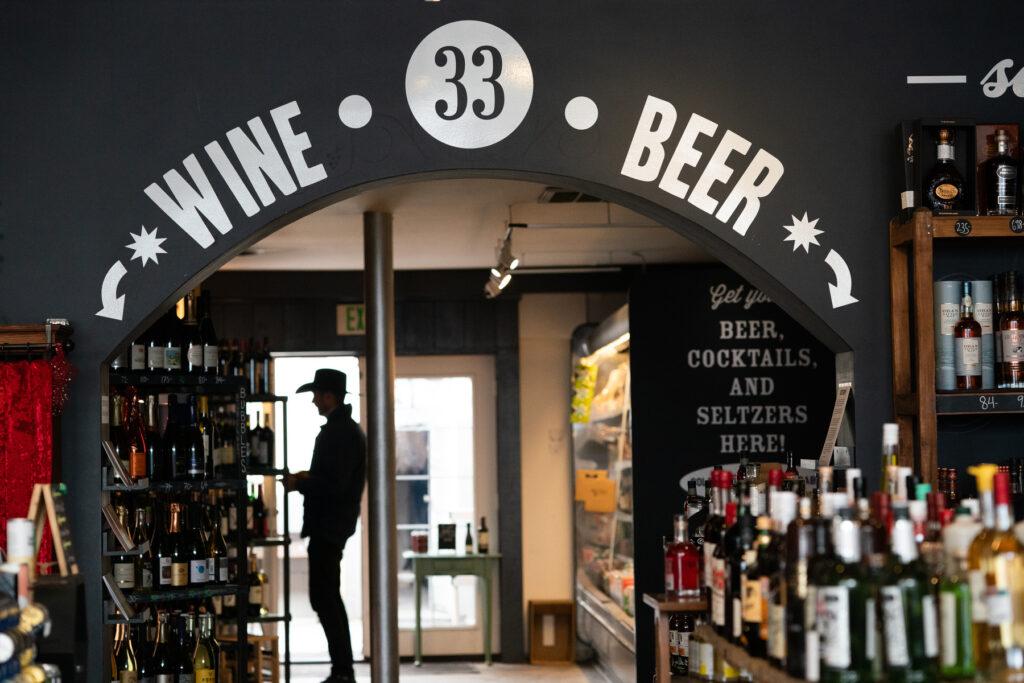
After nearly a decade in business, Bottle Shop 33 is shutting its doors on St. Patrick's Day. It’s known for its display of vintage barware and friendly staff. In 2023, Westword named it Denver’s Best Liquor Store.
“The wine in grocery stores pretty much killed us,” said Rachel Eastwood, the buyer and store manager.
She really started to notice the drop-off over the summer.
“Summertime is the big time for roses and sparkling wines, but we didn't sell a lot of roses. We still have quite a lot of them left over and they're great for spring, but we just didn't see people coming back for wines,” Eastwood said.
Wine sales at the store dropped about 20 percent during the past year, according to Eastwood.
“We don't carry any wines that the grocery stores carry, so we were hoping that people would still come in, look for something interesting but the ability to just shop at the same place and not take two trips won out over wanting to just come in and find something different.”
Mayfair Liquors, Denver
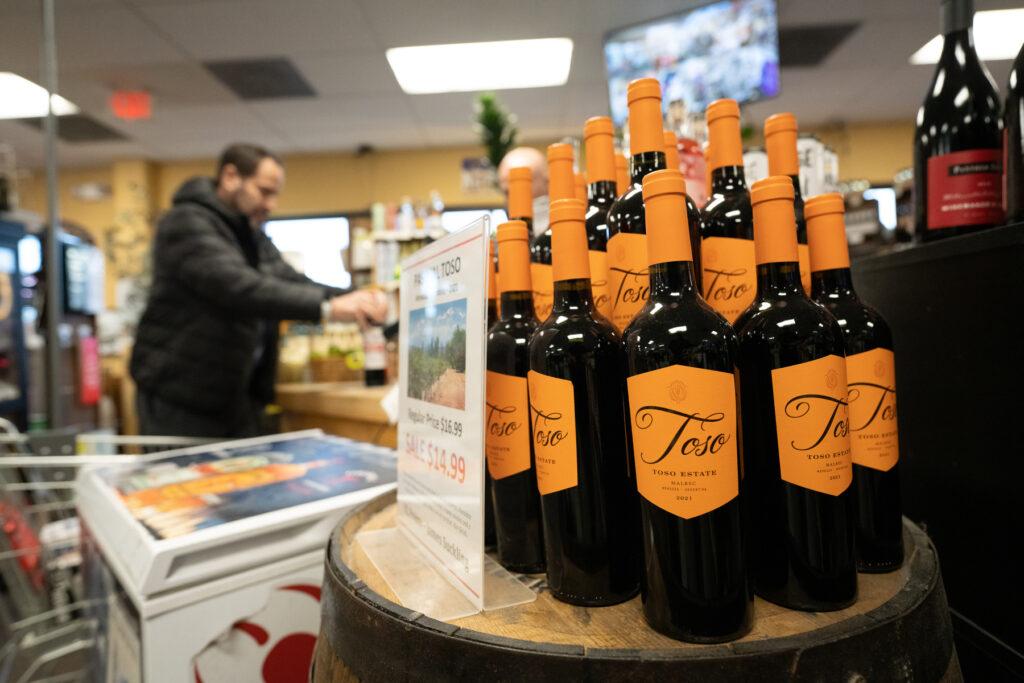
Matthew Amerson is the owner of Mayfair. The store opened in 1959 and has a loyal clientele, according to Amerson. He’s lost one-third of his wine sales to grocery chains. But he thinks Mayfair will be able to ride it out. He said the size of his store is helping him weather the changes. It’s not a giant store with big overhead costs but it’s not a tiny store with no room to trim fat.
“We still have liquor sales, and our delivery business is very strong,” Amerson said. “It is difficult not to grow year over year, which we had done for decades. And to see a year where we're down is kind of scary, but we were positioned in a way that that was something I can absorb.”
But he has had to make adjustments.
“We had an employee that left and I didn't replace him,” Amerson said. “It’s sort of a war of attrition for stores like mine. If other stores go away and I’m around, there are people that don’t want to buy stuff at the grocery store … and they’re going to come to me. But it doesn’t feel great to hope for the failure of other small businesses so that I survive.”
Springs Liquor Outlet, Colorado Springs
The Springs Liquor Outlet is roughly 20,000 square feet, big for a liquor store. Owner Vamsee Amara said he’s seeing the largest decline in sales in name brands like Apothic and Josh Cellars. Those are the types of wines you’ll find on the end caps at King Soopers and Safeway.
Amara has the space to purchase large orders of those big brands and get a good price. But it’s still tough to compete with the grocery chains.
“Because we have the space to store them, we bought them and we continue to buy. We cut our margins on the product to promote sales,” Amara said.
Locals Liquors, Silverthorne
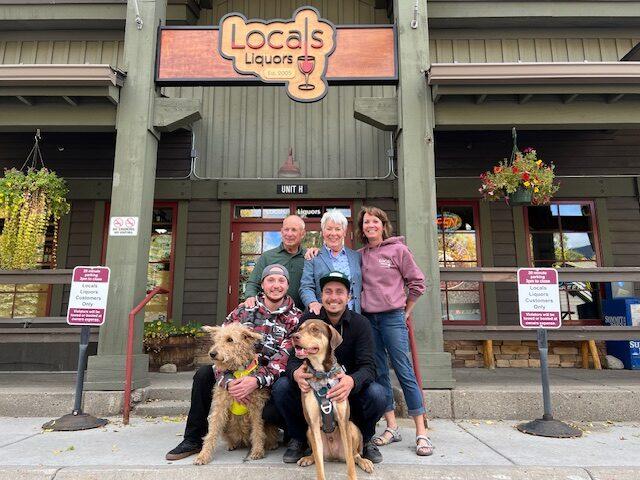
Chris Carran has seen a lot in the liquor store business. She’s owned Local Liquors since 2005. She recalls when supermarkets started selling full-strength beer in 2019. There was concern among liquor store owners at the time about how that would impact business. It didn’t end up being as bad as some had feared.
“We all saw a hit with beer, and then when you introduced wine, it was a huge hit,” she said. “I would tell you that we’re probably down 30 percent in wine total. I live in a growing community, so we’ve had a little bit of a cushion, but it’s been huge.”
Carran would like to see more of an effort made to level the playing field between grocery chains and liquor stores.
“If I get caught selling to a minor, it could be a shutdown, it could be a $5,000 fine. It's a fine to my employee. If a grocery store gets caught, they put tape across their wine department for three days. I shut down my entire store for three days. Their $5,000 fine means nothing to them where it could be devastating and mean payroll to me,” Carran said.
Producers
Sauvage Spectrum, Palisade
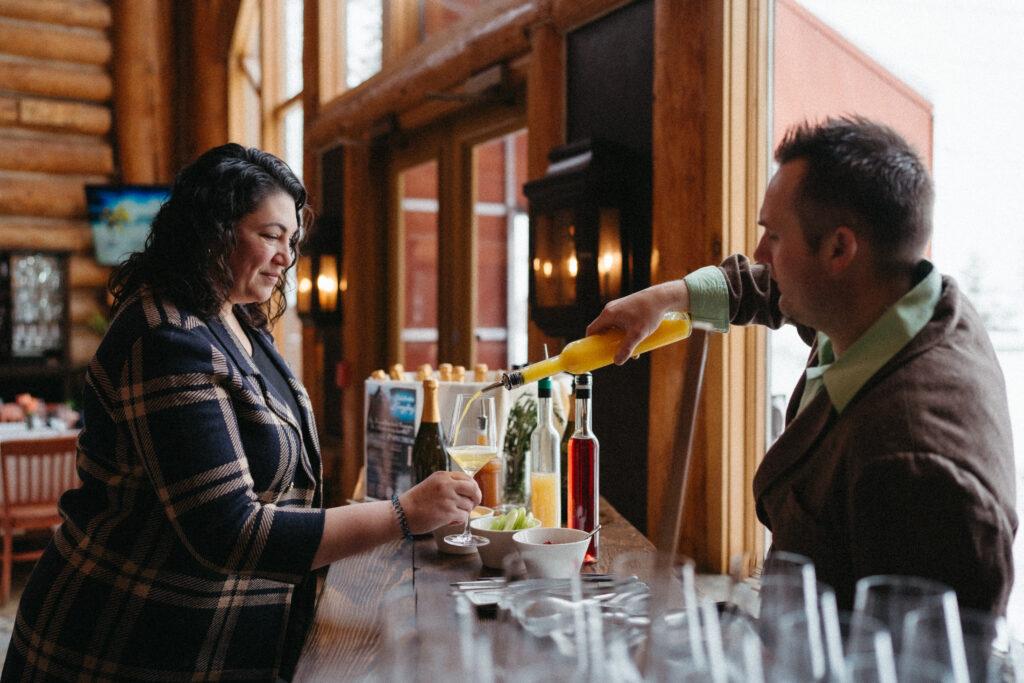
Sauvage, a winery on the Western Slope, got its start focusing on sparkling wine in 2019. Most of the sales take place on-site, but they also sell to about 200 liquor stores, according to Patric Matysiewski, the winemaker and co-founder.
“I think we're in the midst of a shakeout right now and no one is quite sure what to expect,” Matysiewski said. “Who’s going to make it? How much staff are they going to keep? Which brands are they going to carry? And that’s for the supermarkets, too. If they have Colorado wine right now, I don’t believe they’re going to keep all the brands they have. From what I understand, they’re going to keep the ones that are successful for them. And that might only be one if we’re lucky. That could just be a rumor that I’ve heard. So I’m not sure what to expect.”
Diebolt Brewing Company, Denver
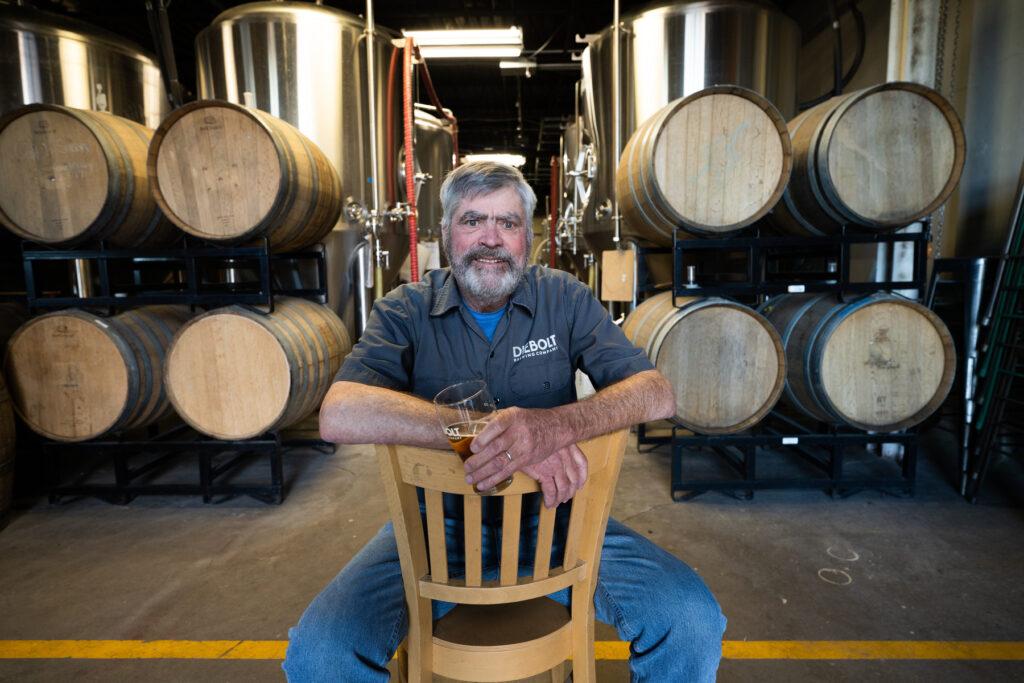
Diebolt Brewing Company has been making craft beers since 2013. There’s a tasting room at the brewery, but about half of the business is wholesale to restaurants and liquor stores, according to founder Dan Diebolt. He said that liquor stores are key to getting exposure for their products.
“When the traffic falls off in those stores, you just lose eyes on the shelf,” he said.
He tested out selling in a supermarket several years ago.
“The handling of their shelf space is way more mercenary than anything I've seen anywhere else … If you don't have the advertising power to compete with the bigger guys on the shelf, and you don't have the name recognition, you can't build your product without competing on that side. And so you basically get relegated to the bottom shelf, into the sales basket, and then out the door, unless you could spend the time and money to compete,” Diebolt said. “It was one of those things where the amount of effort to be in there and try and keep in that store wasn't worth the amount of sales we were doing.”
Diebolt hasn’t heard about a lot of liquor stores shutting down, but he has seen quite a few change ownership.
Distributors
Estate Distributors, Denver
Estate is a locally owned distribution company that sells to 3,000 accounts throughout Colorado, according to owner Aaron Steinke. That includes liquor stores, restaurants, and supermarkets. His company actually gained business when grocery stores started selling wines because he already had a toehold.
“We had to hire a person in our office to handle just getting the SKUs in and maintaining it,” Steinke said.
But it’s not all good news for his business. A lot of his best customers are the smaller shops.
“They’re just asking, ‘Please, bring us stuff that’s not going to be on ad … at these [supermarkets],” Steinke said. “Finding valuable items for my small retailers is important for me, too, in my portfolio.”
Anvil Wine Company, Denver
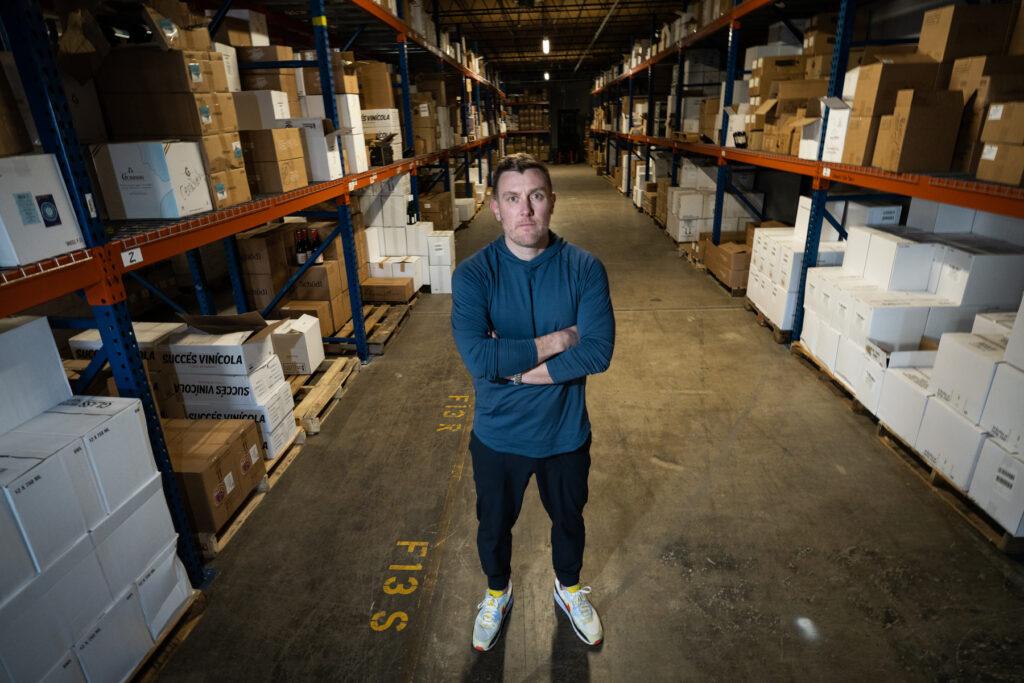
Anvil is a distributor that focuses mostly on European wines from small vineyards. With a staff of five, Anvil serves 120 liquor stores across Colorado, as well as restaurants. Anvil has never dealt with supermarkets, according to owner Matthew Roesch.
“They tend to focus on the national mass-produced wines from California and around the world that are produced in a more industrial fashion that are owned by big conglomerate companies,” Roesch said. “We deal with really small family-owned wineries that we have personal relationships with that generally don't make a lot of wine. And so even if grocery stores were interested, we wouldn't have enough to supply them.”
He said a lot of his customers took a big hit last year when grocery chains entered the fray.
That’s filtered down to his business because the liquor stores are ordering less wine.
“We're sort of beholden to them, and depend on our small little bottle shops to keep us in business,” he said.
But he’s optimistic there will always be people looking for a special bottle.
“We plan to be here to service that niche of the market,” Roesche said.
- Wine at your grocery store? Doordash and big supermarket chains want you to vote on it this fall
- Prop 125 narrowly passes. Coloradans will be able to buy wine in grocery stores soon
- Small liquor stores pivot to more food and delivery as Colorado grocers roll out wine sales
- How are liquor stores faring now that Coloradans can pick up wine with their milk and eggs?








